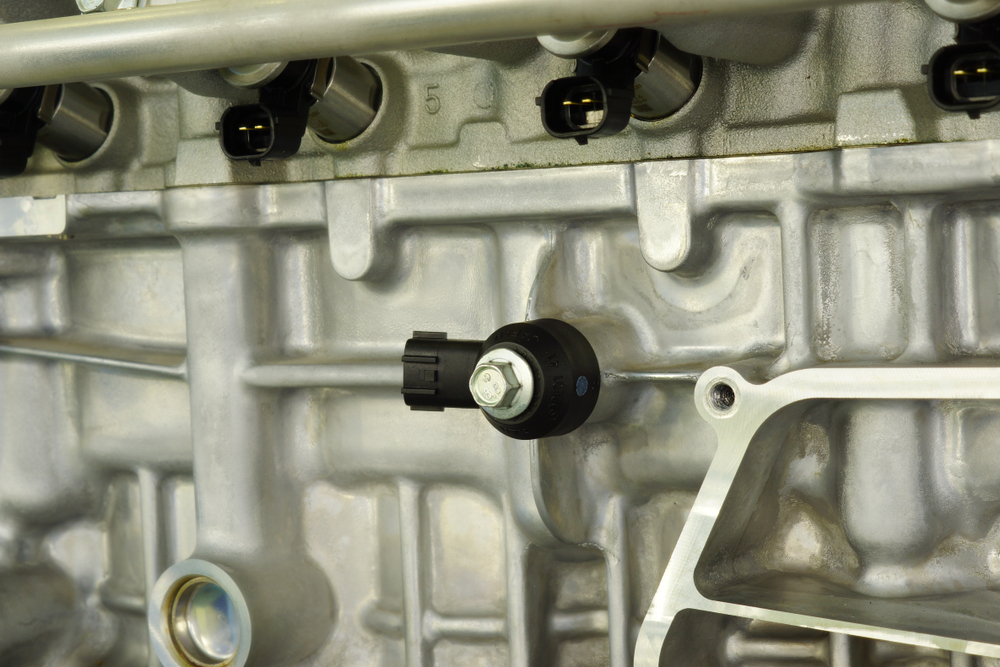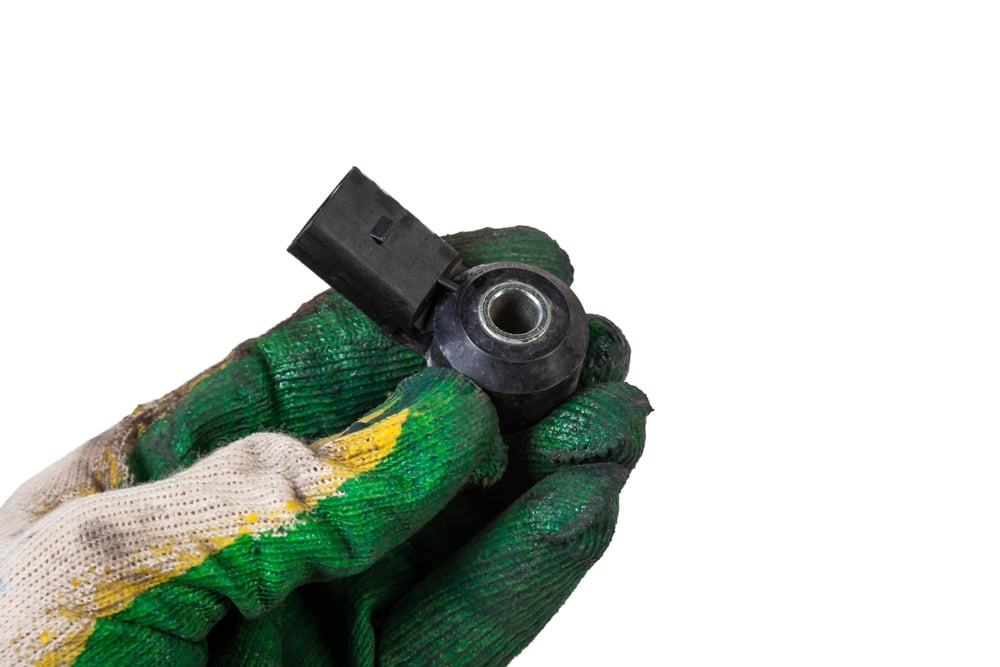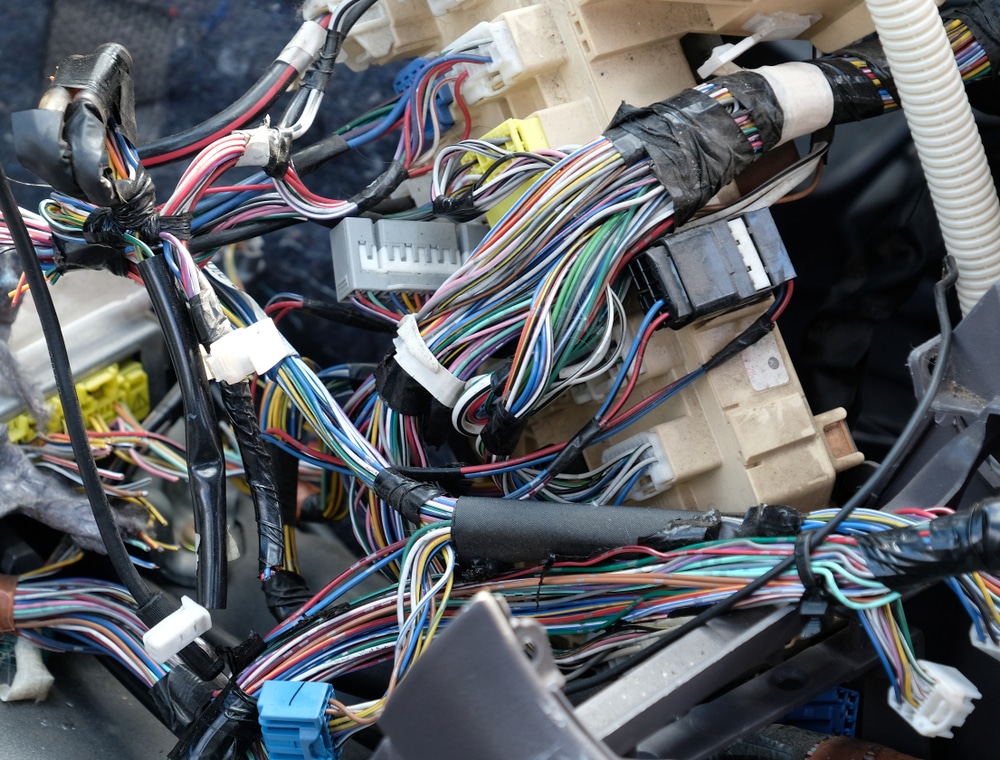Are you having trouble with your Chevy Monte Carlo? If you have a P0325 trouble code, you may be wondering what it means and how to fix it. In this article, we’ll discuss the causes of this issue and how to address it.
The knock sensor’s primary role is to detect and monitor any abnormal vibrations or knocking within the engine, which may indicate a potential problem such as pre-ignition, detonation, or other irregularities.
P0325 in the Chevy Monte Carlo is almost always caused by a faulty knock sensors, damaged wiring, and, in some rare cases, a malfunctioning engine control module (ECM).

P0325 Code Definition
The P0325 code is related to a vehicle’s Knock Sensor 1 Circuit Malfunction.
Knock Sensor

The knock sensor is responsible for detecting engine knock or pinging, which is a result of pre-ignition in the combustion chamber.
When the knock sensor functions correctly, the ECM can adjust the ignition timing accordingly to prevent potential engine damage.
Malfunction
This code indicates that the Engine Control Module (ECM) on the Chevy Monte Carlo has detected an issue with the knock sensor’s electrical circuit.
Common Causes of P0325 in the Chevy Monte Carlo
The P0325 code is an indication of a problem in the Chevy Monte Carlo. Common causes include issues with the knock sensor, wiring, and rarely, the Engine Control Unit. In this section, we will discuss each of these causes in more detail.
Knock Sensor Fault

A common cause of the P0325 code in a Chevy Monte Carlo is a faulty knock sensor. The knock sensor detects vibrations and pinging noises associated with an engine knock.
When the sensor is not functioning correctly, it may send an incorrect signal to the Engine Control Unit (ECU), triggering the check engine light and the P0325 code.
Possible reasons for a faulty knock sensor include:
- Loose or damaged wiring: Wiring connected to the knock sensor can become damaged, corroded, or disconnected, causing an intermittent or constant fault.
- Sensor failure: Over time, the knock sensor itself may fail, leading to a lack of sensitivity or no signal to the ECU.
Depending on the motor in question, your Monte Carlo’s knock sensor can be located under the intake manifold or on the passenger side of the engine block near the cylinder head.
A knock sensor for your Chevy Monte Carlo is relatively affordable and easy to replace.
Wiring Issues Issues

Electrical problems can also contribute to the P0325 code being triggered in a Chevy Monte Carlo. These issues might occur anywhere within the circuit between the knock sensor and the ECU.
Common circuitry issues to check for include:
- Broken, frayed, or corroded wiring: Any of these conditions can lead to a loss of connection between the knock sensor and ECU.
- Loose connections: If the electrical connectors at the knock sensor or ECU are not securely fastened, it can cause a loss of signal transmission.
- Short circuits: Shorts within the wiring or connectors can cause voltage fluctuations and intermittent connection issues.
Engine Control Unit Problems (Rare)

In some cases, the issue might not be with your Monte Carlo’s knock sensor or the circuitry, but rather with the Engine Control Unit itself. The ECU processes input from a variety of sensors, including the knock sensor, to optimize engine performance and efficiency.
If the ECU is faulty or has a software issue, it may not accurately process the knock sensor signal, resulting in the P0325 code.
ECU issues can be more complex to diagnose and may require reprogramming or replacement to resolve the problem.
Symptoms of P0325 in the Chevy Monte Carlo
P0325 is an error code indicating a malfunction in the knock sensor circuit on a Chevy Monte Carlo. This code is usually accompanied by noticeable symptoms, affecting the overall performance and drivability of the vehicle.
Here are the most common symptoms associated with P0325:
Check Engine Light

The most noticeable symptom of a P0325 code is the illumination of the check engine light. This indicates that the vehicle’s computer has detected a problem with the knock sensor circuit.
Poor Vehicle Performance
A failing knock sensor can negatively impact the performance of the Monte Carlo. This can manifest as:
- Hesitation during acceleration
- Stumbling or misfiring engine
- Lack of power or torque
Unusual Noises
When a knock sensor is malfunctioning, it might not detect engine noises correctly. This can result in:
- A knocking or pinging sound from your car’s engine, particularly during acceleration
- An increase in overall engine noise
Reduced Fuel Economy
If the knock sensor is not working correctly, the vehicle’s engine might not be optimizing its performance.
This can lead to a decrease in fuel economy, causing the Monte Carlo to consume more fuel than necessary. Symptoms of reduced fuel economy may include:
- Decreased miles per gallon (MPG) and an increase in fuel consumption
- More frequent trips to the gas station for fill-ups
Diagnosing and Fixing P0325 Chevy Monte Carlo Error Code

Use an OBD II Scanner
To identify the P0325 error code in your Chevy Monte Carlo, use an OBD II scanner. Connect the scanner to the OBD II port located under the dashboard.
Once connected, read the error codes displayed, and if P0325 appears, proceed with the following steps.
Check for Visible Damage to the Wiring Harness
Inspect the knock sensor and associated wiring for visible damages such as:
- Frayed wires
- Corrosion
- Loose connections
If any of these issues are found, repair or replace the damaged components accordingly. Next, use a multimeter or test light to confirm that there is voltage at the knock sensor.
Replace the Knock Sensor if Necessary
If the knock sensor is faulty, it will need to be replaced. To do this:
- Locate your Monte Carlo’s knock sensor on the engine block.
- Disconnect the electrical connector from the sensor.
- Remove the sensor by unscrewing it using a wrench or socket.
- Install the new knock sensor and tighten it to the manufacturer’s specifications.
- Reconnect the electrical connector.
- Clear the P0325 code with the OBD II scanner (or drive your car a while; it’ll clear itself).
Professional Diagnosis
If the error code persists after completing the previous steps, we recommend seeking a professional diagnosis from a qualified technician.
Complex issues such as engine knocking or software updates may require specialized equipment and expertise. A professional diagnosis ensures the problem is accurately addressed and your Chevy Monte Carlo returns to optimal performance.
Conclusion
In conclusion, the P0325 code is a common issue in Chevy Monte Carlos. The most common causes of this code are a knock sensor or wiring issue. If your Monte Carlo is displaying this code, it is important to take it to a qualified mechanic to diagnose and repair the problem.
